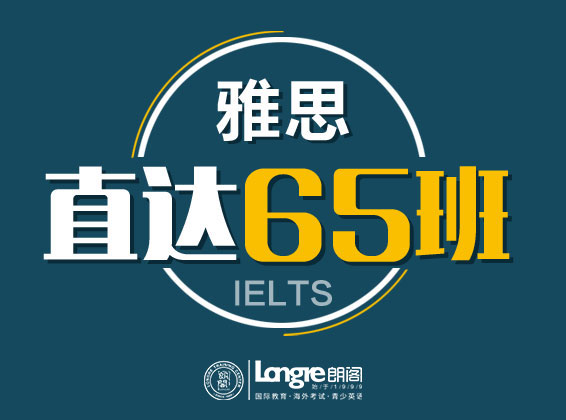|
朗阁海外考试研究中心 崔明媛
近年来,雅思口语考试中的抽象事件类话题逐步增多,可以说在part2整体话题中占有 大比重。而考题内容也从本来“规规矩矩”的真实事件描述扩充到包含“一条重要信息”、“一个关于未来的计划”、“一个不寻常的工作”等颇具抽象性的话题。不难看出,雅思口语考试现在不仅仅考察考生对于真实人物或物品的描述能力,还非常看重其对于一个事件或一个抽象事物的描述。这无疑在一定程度上增加了考生的备考难度,因为对于事件或抽象事物的描述需要考生的逻辑思维和精确的语言表达。否则听者就会对你的描述感到混乱甚至不知所云。
其实事件类的话题大家要把握一个架构:时间、地点、人物、前因、过程、结果、影响。把握这个过程来描述一个普通事件,比如一个室外活动或一个迟到的经历等,基本上是无懈可击的。但近年来陆续出现的一些新题让考生感到彷徨,无从下手,所以这里朗阁海外考试研究中心口语组的就为大家来仔细分析一下历史事件这个考题。
此题乍看之下非常难搞定,但它其实是老题的变形。往年的高频题A festival中其实就包含了许多值得探讨的traditional or historical event。想必以前考生们准备得 多的关于节日的内容就是春节(Chinese Spring Festival),但春节包含的事件并不能称得上是历史事件,而是传说,故不能作为历史事件的内容来投机取巧。其实其他的节日,如端午节的由来就是一个历史事件,考生可从这方面下手。当然很多考生会提出疑问,有时题目中没有规定说自己国家的历史事件是不是就可以说些国外的历史事件。答案是肯定的。但考生们要考虑的是你准备的历史事件是否属实,是否会引起不必要的误解,甚至是否会引起你和考官之间的冲突,如果你准备的事件符合上面任何一点那就不要冒这个险,毕竟一次雅思考试可能就会因为这一点而功亏一篑。所以朗阁建议大家准备一些相对安全的内容, 好是中国的,来避免一些明显的错误。
除此之外,描述端午节的由来还可以与其他话题结合,比如一顿 喜欢的饭和一个历史地点。如果描述一顿饭,考生大可说 喜欢的一顿饭是去年端午节与家人一起吃的一顿饭,同时描述端午节的习俗,与家人的互动来突出那顿饭的意义;而历史地点我们可以描述汨罗江,从而引出屈原投江直至端午节的由来。其实我们可以在备考阶段多准备一些内容,如端午节的基本信息、传统习俗、由来、传统食物等,把这些素材整理清楚,考试时只需把准备好的素材一个个拼凑好,需要哪个用哪个,灵活运用。下面,笔者就以端午节为例,描述一个历史事件。
Describe a historical event you know. You should say: What it was, When it happened, Who attended this event, and explain why it is important to know.
Ok, here I’d like to share some knowledge about Quyuan who drowned himself in a river but had great influence on his society and people. Quyuan was one of the greatest poets in ancient China. He enjoyed great popularity and honour at that time because he cared about people’s livelihood and the fate of the corrupt government. His prestige aroused jealousy of the king so he was banished to the remote area. He felt loss and disappointment so deeply when the capital of his country was captured by their enemy, so he drowned himself into Miluo River. Local folks felt loss to his death so deeply that they implemented salvage for several days, but the result was just disappointing. So people decided to drop glutinous rice wrapped in bamboo leaves which is now called zongzi into the river to protect Quyuan’s body from eaten by the fish. So that day, the fifth day of the fifth lunar month, has become the day that people celebrate in memory of Quyuan. I think his dignity and spirit are highly noble, and I respect his action that rather ending his own life than being a capture of his enemy.
Now the fifth day of the fifth lunar month has become a public holiday called Duanwu Jie, literally Dragon Boat Festival when people find time to spend with families and enjoy watching the exciting dragon boat race. You see this is what I like it for. There are actually various options for people to choose, either to watch a live game in your local river or to enjoy a grand national game on TV. Several teams there to ride their dragon boat in orderly pace, shouting slogans loud, and it’s just all exciting. I personally enjoy watching a live as there’s heat there’s passion and all you do is just to shout loud with those team members. So that’s one of the really important events in Chinese history and I think I’ve already explained my feeling about it clearly.
本文是以历史事件为主题进行描述的,并没有注入太多的关于传统习俗和食物的内容。这就是所谓的“取舍”。我们平时准备了关于端午节的所有内容,当真正要说的时候只选取要用的内容,不需要的立刻放弃。同时还要注意重点的转移。当需要描述历史事件时,你的顺序应该是事件名称—>事件过程—>事件影响;而当你需要描述历史地点时,顺序就变成了地点名称—>事件原委—>事件影响—>地点的地位和影响;但是当你需要描述一顿饭时可能并不需要太多的关于历史事件的描述而是多地描述与家人的互动,端午节当天的习俗活动等。总之,考生应该多准备勤思考,才能做到游刃有余。 (责任编辑:admin) |







